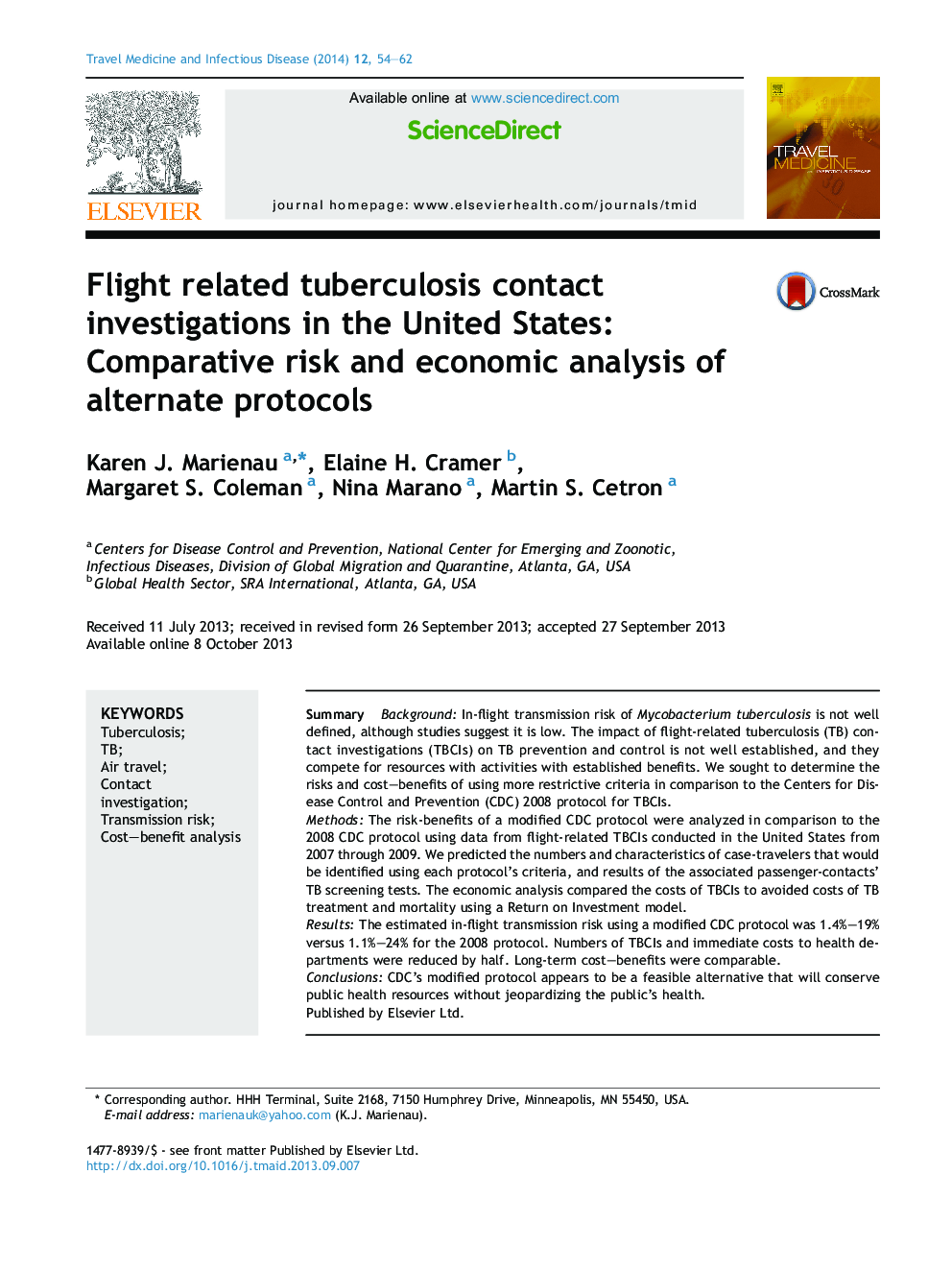| Article ID | Journal | Published Year | Pages | File Type |
|---|---|---|---|---|
| 3393029 | Travel Medicine and Infectious Disease | 2014 | 9 Pages |
SummaryBackgroundIn-flight transmission risk of Mycobacterium tuberculosis is not well defined, although studies suggest it is low. The impact of flight-related tuberculosis (TB) contact investigations (TBCIs) on TB prevention and control is not well established, and they compete for resources with activities with established benefits. We sought to determine the risks and cost–benefits of using more restrictive criteria in comparison to the Centers for Disease Control and Prevention (CDC) 2008 protocol for TBCIs.MethodsThe risk-benefits of a modified CDC protocol were analyzed in comparison to the 2008 CDC protocol using data from flight-related TBCIs conducted in the United States from 2007 through 2009. We predicted the numbers and characteristics of case-travelers that would be identified using each protocol's criteria, and results of the associated passenger-contacts' TB screening tests. The economic analysis compared the costs of TBCIs to avoided costs of TB treatment and mortality using a Return on Investment model.ResultsThe estimated in-flight transmission risk using a modified CDC protocol was 1.4%–19% versus 1.1%–24% for the 2008 protocol. Numbers of TBCIs and immediate costs to health departments were reduced by half. Long-term cost–benefits were comparable.ConclusionsCDC's modified protocol appears to be a feasible alternative that will conserve public health resources without jeopardizing the public's health.
